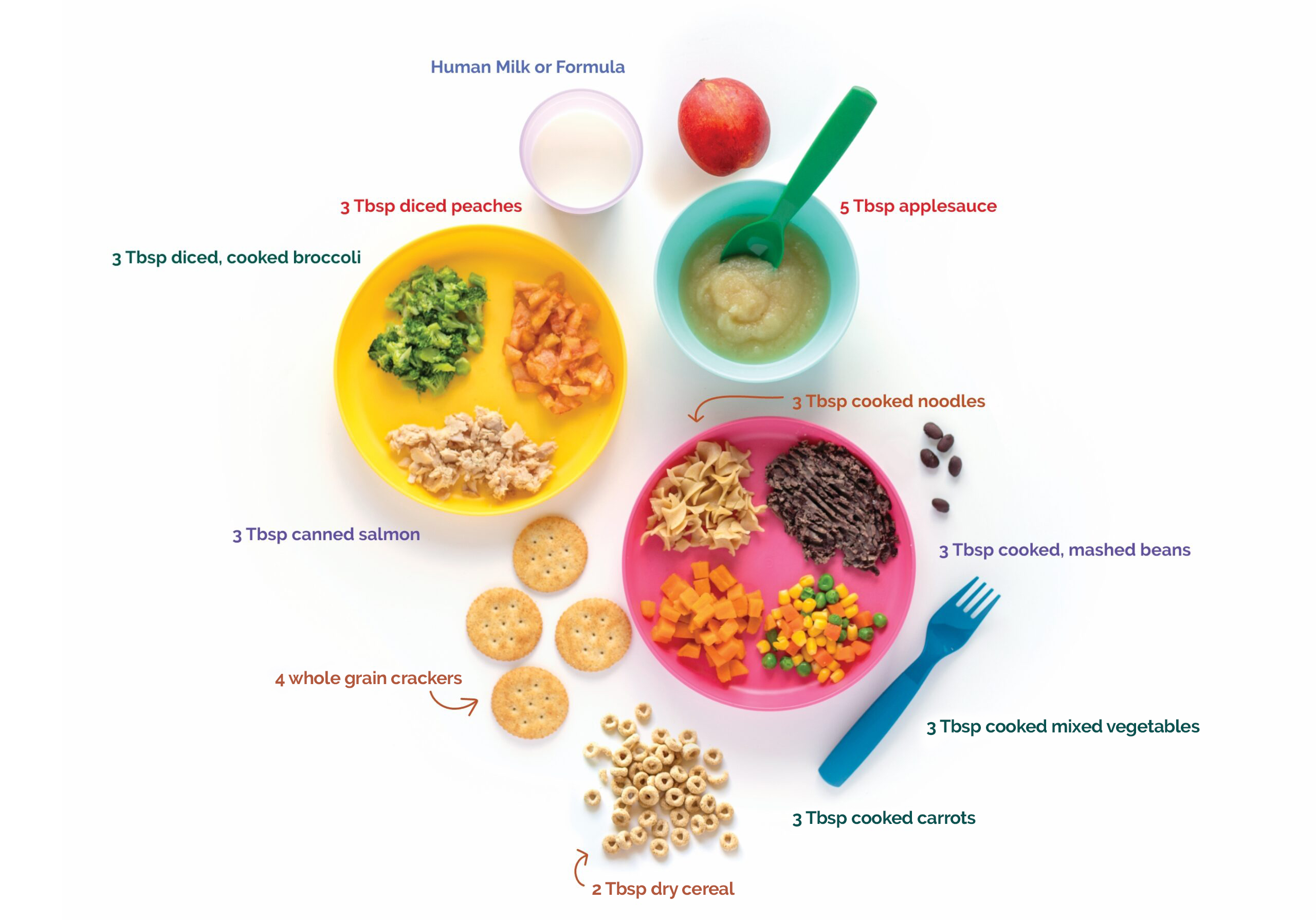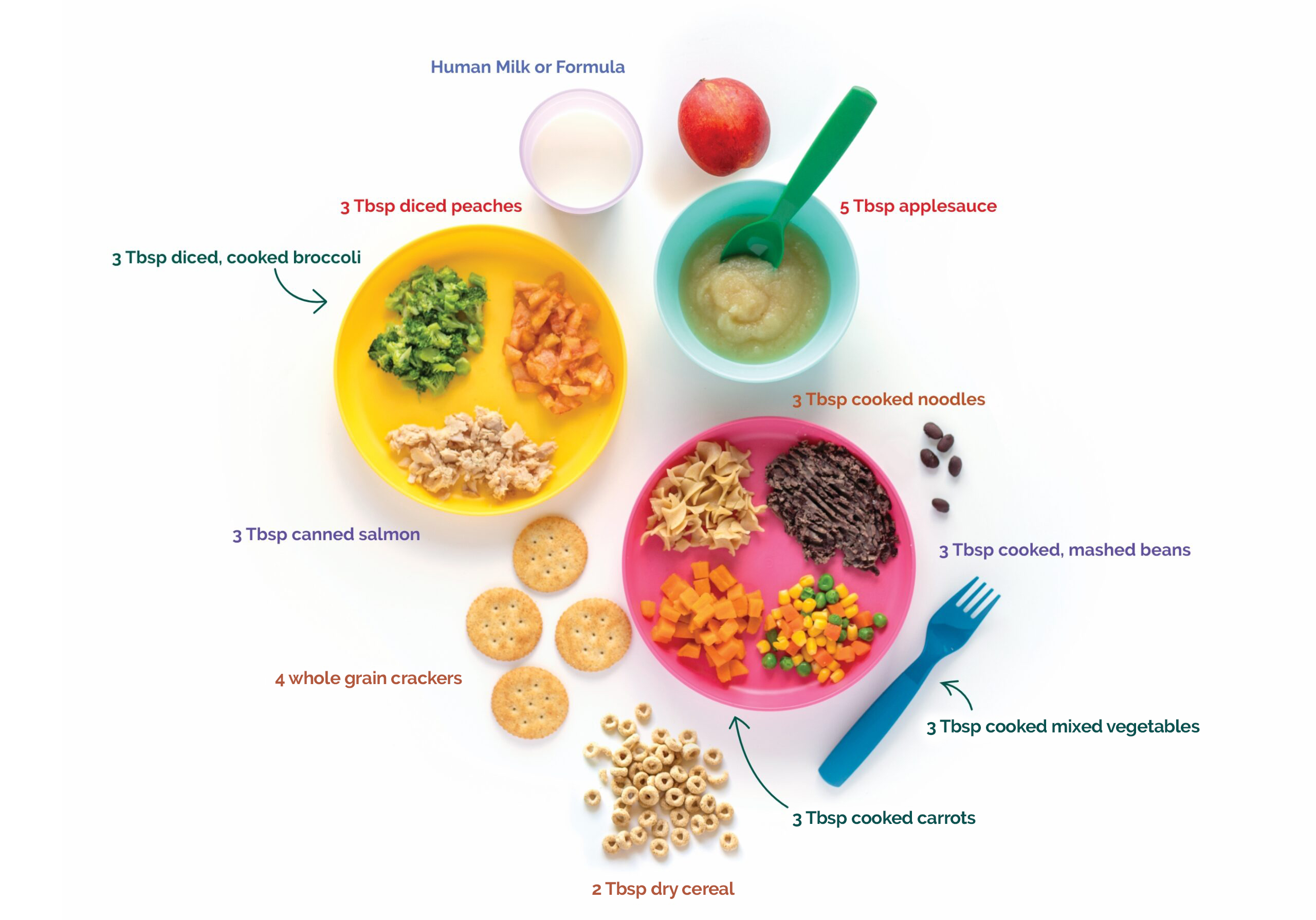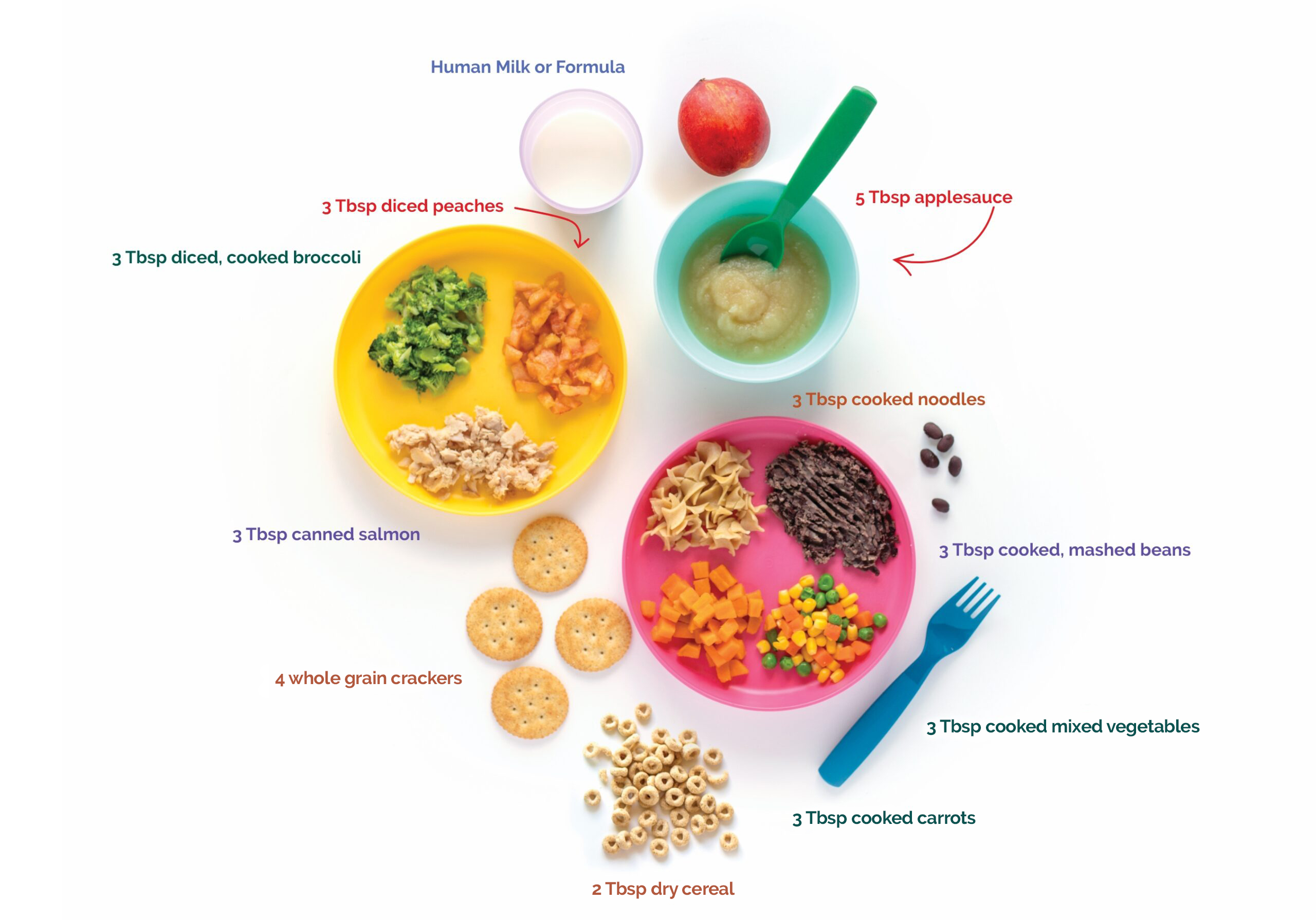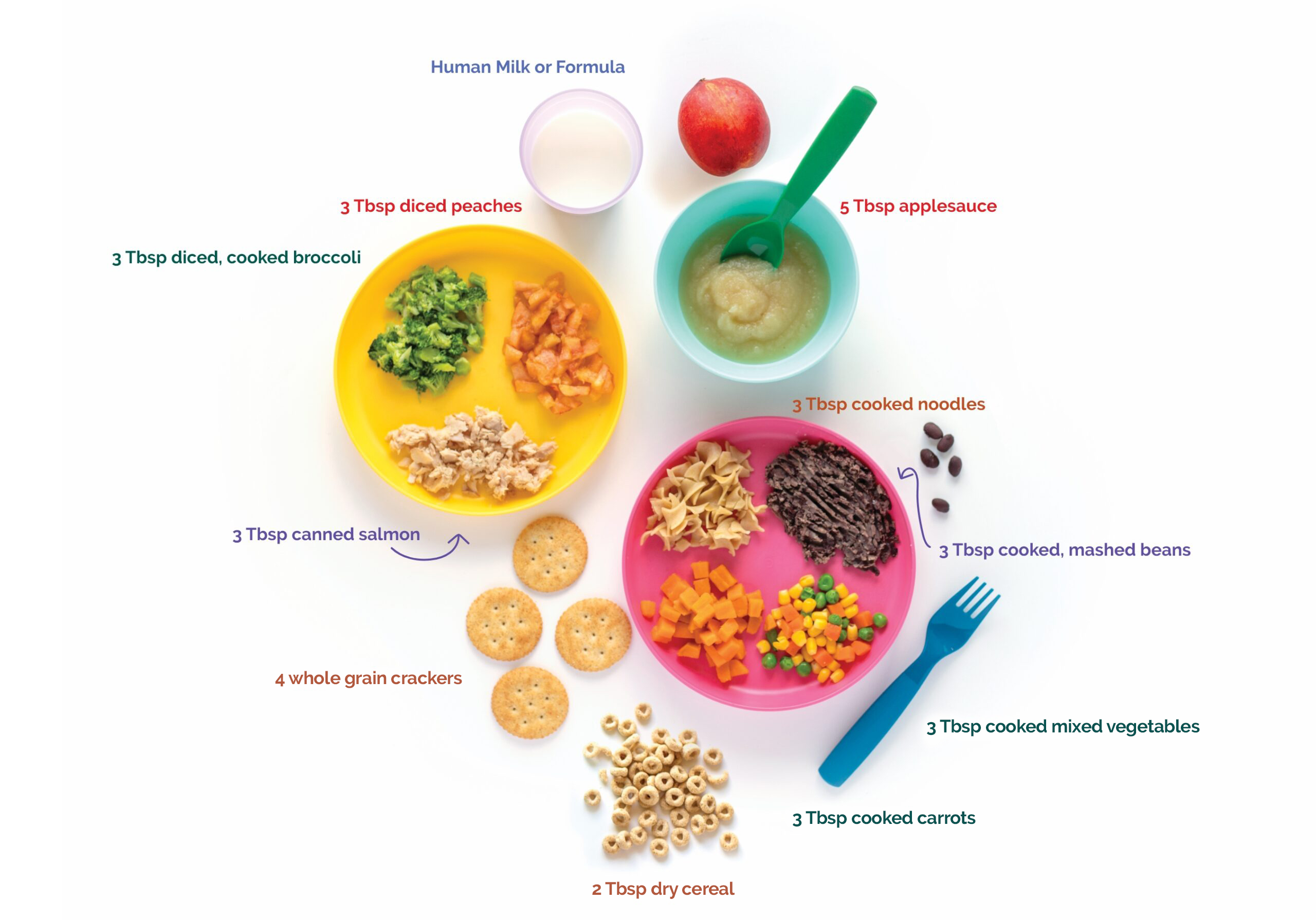
Hello World
I am your baby. You are my everything.
Please help me grow strong in body, heart, and mind. I grow best when you:
- Hold me skin-to-skin or cuddle me. I feel safe in your arms.
- Smile and talk to me. I learn so much from you.
- Listen to me when I “talk” to you. I use my body movements and noises to tell you when I am hungry, full, uncomfortable, or just tired.
Breast milk or baby formula with iron is all I need to grow and develop for my first 6 months.

Breastfeeding
You Have What I Need To Grow.
Breast milk is the perfect food for me.
- It has all the nutrients I need to help me stay healthy and not get sick.
- Your breast milk changes as I grow. The longer we breastfeed, the better.
Talk with our healthcare provider if we are exclusively breastfeeding to ask if I need extra vitamin D. Ask about an iron supplement when I’m about 6 months old.
Formula Feeding
If I drink formula, it’s important to mix the ingredients the right way. Follow the mixing directions on the can.
Always add water to the bottle first, then the powder formula.
Always use the scoop provided in the can of formula. Make sure it is level.
Use prepared infant formula within 2 hours after taking it out of the refrigerator.
Once I start feeding, throw away any formula left in the bottle after 1 hour.


Paced Bottle Feeding
Whether it’s breast milk or formula in my bottle:
- Start by offering only a small amount at a time, 2 to 3 ounces of breast milk or formula.
- Let me be in control of how fast I drink from the bottle.
- Trust me to know when I am full. Please don’t make me finish a bottle.
- Keep prepared bottles in a refrigerator until you are ready to feed me and use them within 24 hours.
- Never microwave breast milk or formula. “Hot spots” can burn my mouth. Ouch! Warm up my bottles in hot water instead.
I Need Your Touch
Hold me when you feed me.
I feel safe with you and love to look at your face.
Sometimes I may take a break from eating, even though I’m not full yet. I just want to rest or share some special time with you.
Help me stay awake while you feed me. Please don’t prop up my bottle. I could choke or get an ear infection.
I Need to Eat Often
My stomach is small.
My tummy can hold about 2 to 3 ounces at a time.
I will want to eat 8 to 12 times in 24 hours.
Feed me every 1½ to 3 hours.
My tummy can hold about 4 to 6 ounces at a time.
I will want to eat 6 to 8 times in 24 hours.
Remember, all babies are different. I may eat different amounts from one day to the next. As I become older and my stomach grows, I may eat less often, but can eat more at each feeding.
Look for My Signs
I use body movements and make noises to let you know what I need. If you look for these signs, you can respond to me before I start to cry. I am much easier to feed when I am calm.
“I’M HUNGRY”

When I’m starting to get hungry, I might:
- Bring my hands to or near my mouth
- Move my arms and legs
- Make sucking noises
- Move my mouth or tongue
- Turn my head or search for the nipple (root)
“I’M FULL”

When I’m feeling full, I might:
- Suck slower or stop sucking
- Relax my hands and arms
- Turn away from the nipple
- Push away
- Fall asleep
- Frown, fuss, or kick if you keep feeding me
Growth Spurts
As I grow, my routine might change, and I may want to eat and sleep more than usual. These are called growth spurts.
All babies are different, but my growth spurts might happen when I’m around the ages of:

2 to 3 weeks


3 months

4 months

6 months

9 months
If I act hungry after I finish a feeding, offer me the breast again. If I am taking a bottle, offer me another ounce or two.

Play with me!
I’m ready to learn about you, me, and the world we live in.
I want to discover what my body can do.
Give me TUMMY TIME when we play.
When I’m alert and relaxed, put me on a blanket on the floor. Watch how I stretch and kick my legs and move my arms. I’m making them stronger.
Playing helps me learn, improve coordination, build strength, explore, and bond with you!

Look what I can do!
I learn best when I feel happy, loved, and safe.
The world is new to me. It can be scary. I may cry a lot at first.
- Crying is my way to say I need you.
- When we are skin-to-skin, I calm down. I learn that you care.
- Holding me will not spoil me.
I must learn what day and night are.
- At first, I sleep, wake up and eat, and go back to sleep often. This is normal and helps me grow.
- After I am 3 months old, I may sleep for longer periods of time.
- Please be patient as I learn.
I know your voice.
- I like to hear you talk.
- I can sleep longer at night.
- I can hold my head up.
- I know my name when you say it.
- I babble ba-ba-ba!
- I can laugh.
- Let’s play peek-a-boo and pat-a-cake.
- Show me the pictures and tell me what they are.

Keep me safe and healthy
- ALWAYS put me to sleep alone on my back, and in my crib or pack-n-play. We can share a room, but not the same bed. I could suffocate if a blanket, pillow, or toy covers my mouth or nose.
- Wash your hands before making my food and feeding me.
- After I eat, wipe my gums with a clean, soft, wet cloth, especially before bed.
- Wait until I’m about 6 months of age before offering solid foods. I need time to develop my immune system and strengthen the muscles in my mouth to eat and swallow foods properly. If I’m given solid foods before I’m ready, I could choke or get sick.
DO NOT let me have these foods until I am at least 1 year old:
Cow’s milk or other non-dairy milks (like soy or almond milk). It’s too hard for me to digest and may cause health problems.
Honey and foods made with honey. Honey can contain bacteria that cause infant botulism, or food poisoning. These bacteria are harmless to older kids and adults.Introducing Peanut Butter
If my healthcare provider says it is ok, let me try peanut butter around 6 months of age. Doing this might help prevent a peanut allergy as I grow older.
In the morning, mix one teaspoon of peanut butter with breast milk or formula. Make it thin and easy to swallow.
Use a spoon to offer a taste of the thinned product. Wait 10 minutes, then offer more. Watch for any reaction for the next 2 hours.
























